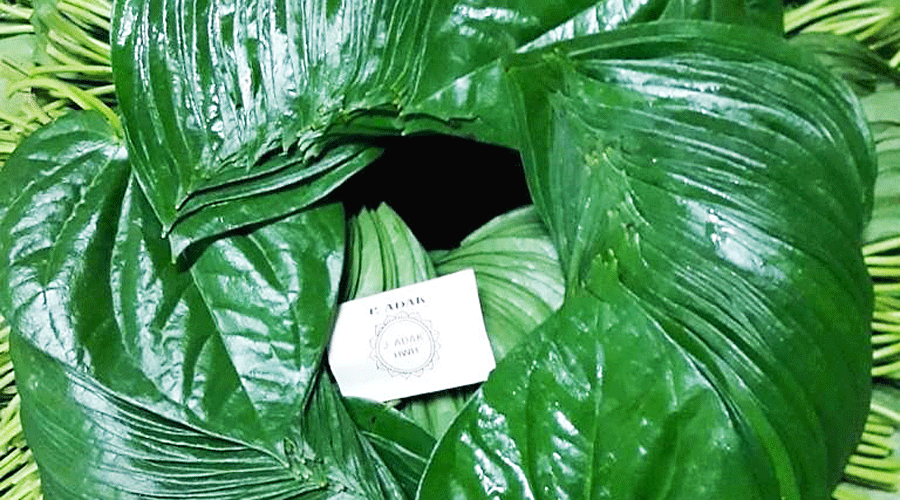The Bengal government has issued a notification allowing landless betel-leaf farmers to register their farms for export of their products to the UK and European Union (EU) with consent from land-owners, in an attempt to boost the agro-industry.
“Earlier, only farmers with land records in their names were allowed to register their farms for export, especially to the UK and EU, which are leading consumers of betel leaves from Bengal. When we found many landless farmers also grow betel leaves on others’ land, we issued the notification by which they can register themselves for export with a written nod from the land-owner,” said a horticulture department official.
The notification issued by the state horticulture department in January this year stated that farmers whose land records had not been transferred to their names could register their farms with assent from the family member who owns the land. Sharecroppers or landless farmers can now do the same by taking consent from the land-owner.
The lower ceiling of the farm for registration for export to the UK and EU is 200 sqm and farmers are supposed to have cultivation rights to the land in order to register their farms for the export of betel leaves.
Bengal is a major producer of betel leaves in the country and contributes around half of the volume of leaves exported to several countries, including the UK and EU. North and South 24-Parganas, East Midnapore, Alipurduar, Cooch Behar and Nadia are among major betel leaves-producing districts involving as many as 20 lakh farmers.
Sources said the decision to involve more farms in the export process was taken after the export of betel leaves saw a surge over the past financial year. India exported $6.18 million worth of betel leaves in the 2021- 22 fiscal compared to $3.56 million in the previous year. Bengal alone exported betel leaves worth $4.15 million in 2021-22.
Apart from the UK and EU, Bangladesh, Saudi Arabia, Thailand, Oman and Kenya are other key consumers.
Most countries are used betel leaves as mouth fresheners or paan, and a few countries to produce medicine.
Sources said betel leaf exports from India to the UK and EU were stopped five years ago after a consignment was detected tainted by the bacteria salmonella. However, after the registration of exporters for shipments to the UK and EU came under the Shellac and Forest Products Export Promotion Council (Shefexil) in September 2021, the council became the competent authority to issue the health certificate instead of the earlier regulatory body, the Agricultural and Processed Food Products Export Development Authority (Apeda).
“After the responsibility came under Shefexil, we first addressed the issue of Salmonella by educating farmers and arranging the best agency in Hyderabad to test the betel leaves for issuing a health certificate,” said Debjani Roy, executive director of Shefexil.
“The new notification by the Bengal government would help lakhs of farmers register their farms for the export of their produce. We hope the export of betel leaves will be doubled within one or two years,” Roy added.
Sources said hundreds of landless betel leaf farmers have started registering their farms in districts like Nadia, where a large number of landless farmers cultivate betel leaves on others’ land.
Premjit Adak, a prominent exporter of betel leaves from Bengal, said the decision of the Bengal government would have a big impact on export. “The decision will not only help the farmers but also help exporters like me to get betel leaves easily for export to the UK and EU. Farmers get a better price if they sell leaves for export rather than in local markets,” said Adak.
Exporters, however, pointed out that 18 per cent GST on air freight of betel leaves posed a challenge.
“Bangladesh also exports betel leaves to the countries where we do. As Bangladesh has no GST on air freight, they can sell at a cheaper rate. If the government considers withdrawing the GST, it will help,” added Adak.











